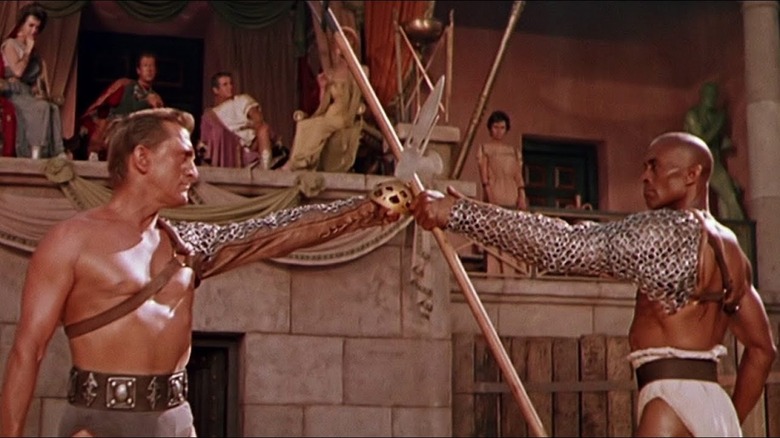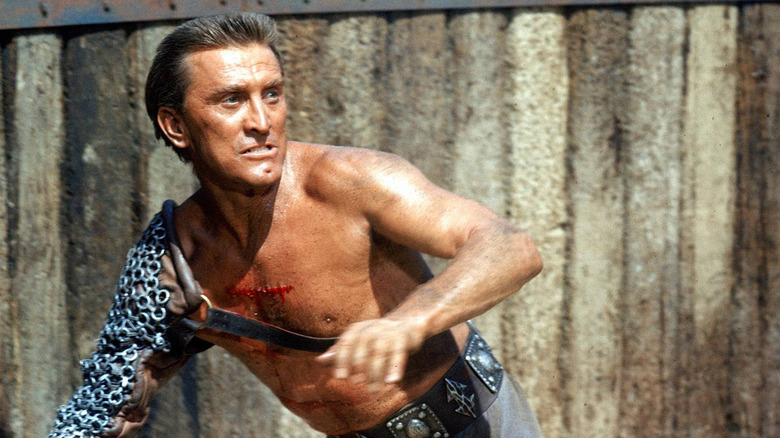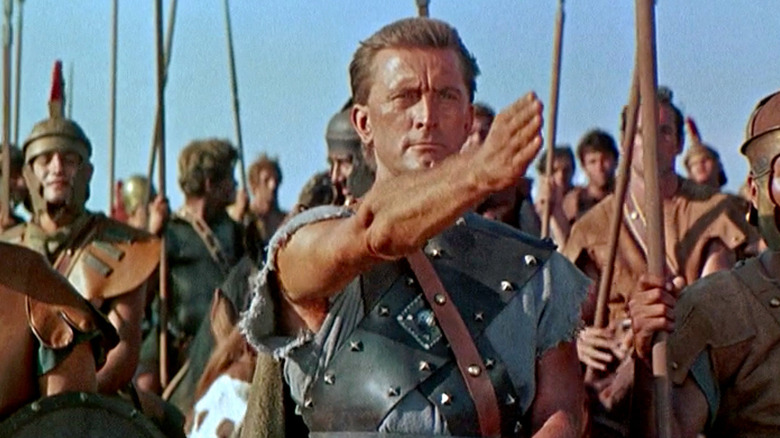In today's political climate, you might argue that everything old is new again. Culture wars are stoking political chasms perhaps not this wide since the Cold War era. Today if you replace "wokeism" with communism, it looks a bit like the Post-World War II era known as the Red Scare. Back then people were so fearful of the spread of communism the U.S. government formed a House Un-American Activities Committee to monitor the activities of private citizens.
The committee's goal was to root out suspected communist sympathizers within the government and private institutions. Those suspected of supporting communism were often arrested or even deported. In the 1950s, Senator Joseph McCarthy, the public face of the House Un-American Activities Committee, took aim at Hollywood.
Why Hollywood? The Hollywood Reporter explained that around one-third of the nation's movie theaters closed during the Great Depression. The ripple effect left actors and studio workers out of work, many of whom turned to left-leaning organizations during their economic hardships, including the Communist Party of the United States. In McCarthy's eyes, it gave Hollywood the reputation of having a socialist agenda.
McCarthy drove scores of Hollywood actors, writers, directors, and producers out of the industry. It would take more than a decade for Hollywood to fully recover, spurred by a defiant act from one of its biggest stars.
The Hollywood Ten

When the House Un-American Activities Committee took aim at Hollywood, studio executives caved. They agreed to blacklist anyone accused of or admitting to being a communist sympathizer. In a bold act of defiance, ten screenwriters, directors, and producers refused to cooperate with the committee. They became known as the Hollywood Ten. Their refusal to testify and name names resulted in prison terms of up to a year. As promised, they were also blacklisted from Hollywood and suspended by the president of the Motion Picture Association of America.
Beyond the Hollywood Ten, those "outed" by the committee were also blacklisted from the industry. Many actors, producers, and directors left the business, including Sidney Buchman, the Academy Award-winning writer of "Mr. Smith Goes to Washington." Some screenwriters were lucky enough to find work under pseudonyms, often for low-budget productions.
Academy Award-winning Screenwriter Dalton Trumbo was one of the Hollywood Ten. Once released from prison after a nearly year-long sentence, he moved to Mexico and continued to write under various names. Speaking about the era, Trumbo would later say:
"The blacklist was a time of evil and no one on either side who survived it came through untouched by evil … It will do no good to search for villains or heroes because there were none. There were only victims."
The House Un-American Activities Committee plagued Hollywood for nearly two decades. But in 1960, one of Hollywood's biggest names, ironically the son of Russian immigrants, helped unofficially end Hollywood blacklisting.
'You're Working With A Blacklisted Writer!'

Kirk Douglas had no interest in politics or communism when he arrived in Hollywood. The Hollywood blacklist hearings had just started when he made his first film in 1946. Three years later, he founded the production company Bryna Productions (named after his mother) and began producing his own films. It was fitting that Douglas' 1960 film about a defiant Roman slave, "Spartacus," was a major rebellion in its own right.
Douglas explained to Interview Magazine how he ended up working with a blacklisted writer on "Spartacus." Douglas said:
"I wanted to get the best writer. The best writer was Dalton Trumbo, who had served a sentence in jail and then moved to Mexico. But when he came back, he wrote the script in secret under the name Sam Jackson. I got a call from [producer/director] Otto Preminger, who said, 'You're working with a blacklisted writer!' He was very mad at me. I said, 'I don't care,' and he hung up."
In what Douglas called the proudest moment of his career, he released "Spartacus" with Dalton Trumbo listed as the screenwriter, making him the first blacklisted writer to use his own name since the trials began more than a decade prior. The end of the film echoes Trumbo's acts of defiance against the House Un-American Activities Committee when Spartacus' army refuses to give him up. The scene has become famously known as the "I'm Spartacus!" scene.
"Spartacus" was the perfect film to rebuke the blacklist and forge a new path forward for the industry. Douglas remained steadfast in his rebellion and what the film meant to Hollywood. "I'm proud of using his name and breaking the blacklist," Douglas reflected. He added, with a twinge of regret, "That was a terrible time in Hollywood history. It should never have happened. We should have fought it."
Read this next: The 15 Best Historical Epic Movies Ranked
The post How Kirk Douglas Helped Break The Blacklist With Spartacus appeared first on /Film.
